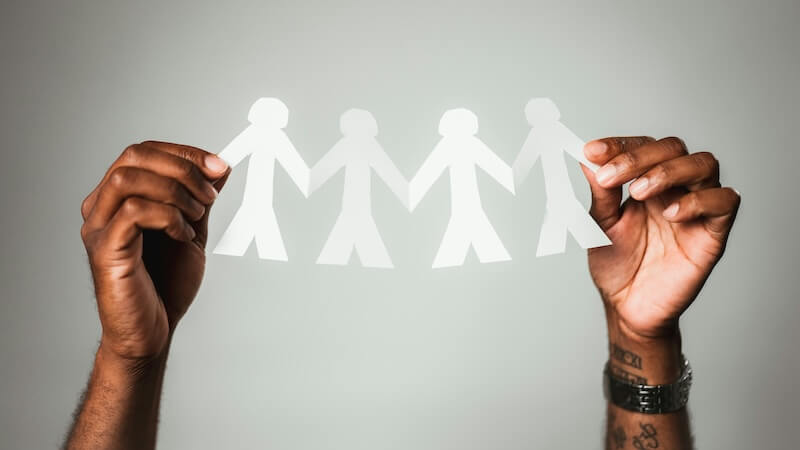Proactive Relationships
Episode #1 of the course Mastering your relationships by John Robin
Welcome to the course!
Over the next 10 lessons, you will learn about how to master your relationships.
My name is John Robin. You likely know me well by now since I have written twenty-one Highbrow courses on topics ranging from science, math, health, fitness, wellness, meditation, and longevity—the list goes on! If you took every one of my courses, your inbox would be full of daily nuggets of wisdom for half a year.
Why am I now writing about relationships?
This course is a byproduct of one of my most popular Highbrow courses—Mastering Your Conversations. One of the main themes that framed the principles of that course was relationships. But there wasn’t space to go into this material in that course, so I put these notes aside and promised I would return to them and make a follow-up course.
So, here it is!
Why Are Relationships Important?
This might seem a trivial question, but many of us take relationships for granted—often without realizing it.
We are surrounded by people every day:
• those closest to us, such as family or intimate partners,
• those with whom we spend lots of time, such as friends or coworkers,
• those we might see occasionally, such as acquaintances,
• those we might only see once in our life, such as a stranger passing our way on the street whom we smile at, then never cross their path again.
How we interact with each of these categories of people determines the nature of our relationships. We will call this the relationship interaction, and it can even extend to non-humans such as pets, plants, or any other living thing you’d like to consider. The interaction can be first-hand such as talking, smiling, or eye contact. Or it can be second-hand—for example, you’re at a cafe and you find out through a friend that a mutual acquaintance saw you working on your laptop but didn’t want to disturb you.
We will be coming back to this relationship interaction concept throughout the course, so it’s worth wrapping your head around it now.
Back to that stranger on the street. This might have seemed a silly example because how is that relationship important if you only smiled at them but will never see them again?
This question is going to be central to the course. It’s going to be central to this lesson as well, so let’s see why it’s important.
Imagine instead you didn’t smile at that stranger. Let’s say you only noticed them in your peripheral vision because you were immersed in your own thoughts about the meeting you’re running late for. Or—what if you noticed they had a Game of Thrones shirt on and it caught your eye, and you complimented them?
It’s important to note that you always have a choice as to how you want to interact with someone. Even a seemingly insignificant interaction when passing someone on the street, or similarly with a stranger standing with you in the Starbucks line-up, could be how you might meet the most important person in your life; or they could be the most important person you could have met but didn’t because you just don’t talk to strangers.
The relationship interaction is a tool at your disposal. With this, you can decide to embody proactive relationships. These are the types of relationships that occur when you recognize your part in the relationship interaction factor. You have a choice how you want to interact, always, and it can make life-changing differences, even if it starts simply with a smile.
This course won’t focus on how to turn every stranger you see on the street into a best friend, as that strategy might have people thinking you’re clingy, pushy, or just strange. We’re also not going to talk about how to talk to strangers and offer random compliments to people. Instead, we will talk about something far more interesting: how to discern the best way to interact better with everyone in your life, be it strangers, acquaintances, friends, family, or intimate partners.
This course will explore this principle across the five domains of relationships:
• How to deepen intimacy in your closest relationships (lessons 2 and 3),
• How to get more out of friendships (lessons 4 and 5),
• How to nurture your acquaintance network (lessons 6 and 7),
• How to interact with new people (lessons 8 and 9),
• How to manage difficult relationships (lesson 10).
Tip of the Day: The Power of a Deep Breath
Just as I did in Master Your Conversations, I will end each lesson with a tip to apply what we’ve learned in the lesson.
So, let’s explore a technique that will help us appreciate the relationship interaction better.
Each time you see someone you’d like to interact with, take a deep breath in and look at them the whole duration of that breath. During the initial part of the in-breath, our thoughts are most concentrated. What you will notice if you train yourself to take in a deep breath and look at the person before you is that you will gain more awareness of how that moment of interaction offers you a rich array of choices.
You might simply smile and make eye contact, or nod, or you might say “hello.” But most definitely, you will feel different and more open to how you can relate better to people.
This practice comes from those who are deeply-realized meditators, and it will be the foundation for the other tips we will encounter in the remaining lessons.
Stay tuned for tomorrow, when we will dig into relationship styles.
Recommended audio course
Mastering Your Conversations by John Robin
Share with friends

